


flag of modern India

flag of Northwest Provinces, British India
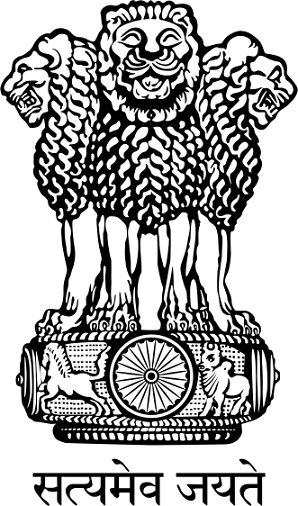
COHORT
father of
-
India-PM 1917-1984 Martial Law Indira Gandhi
grandfather of
-
India-PM 1944-1991 Rajivaratna Gandhi
younger colleague of
-
Satyagraha 1869-1948 Mahatma Mohandas Gandhi
-
Gitanjali 1861-1941 Rabindranath Tagore
fractious relationship with
-
UK-PM Finest Hour 1874-1965 Winston Churchill
born 7 months after
-
Germany-dictator 1889-1945 Nazi Adolf Hitler
born 11 months before
-
POTUS-34 Interstate Highways 1890-1969 Dwight D. Eisenhower
born 12 months before
-
Foursquare Evangelist 1890-1944 Aimee Semple McPherson
born 13 months before
-
France-Pres 1890-1970 Mémoires de Guerre Charles de Gaulle


Prime Minister of India [1947-1964]
attorney
social-change activist
independence leader
negotiator + author + ruler
Earth-birth Thursday-14-Nov-1889
dematerialization 27-May-1964 [age 75]
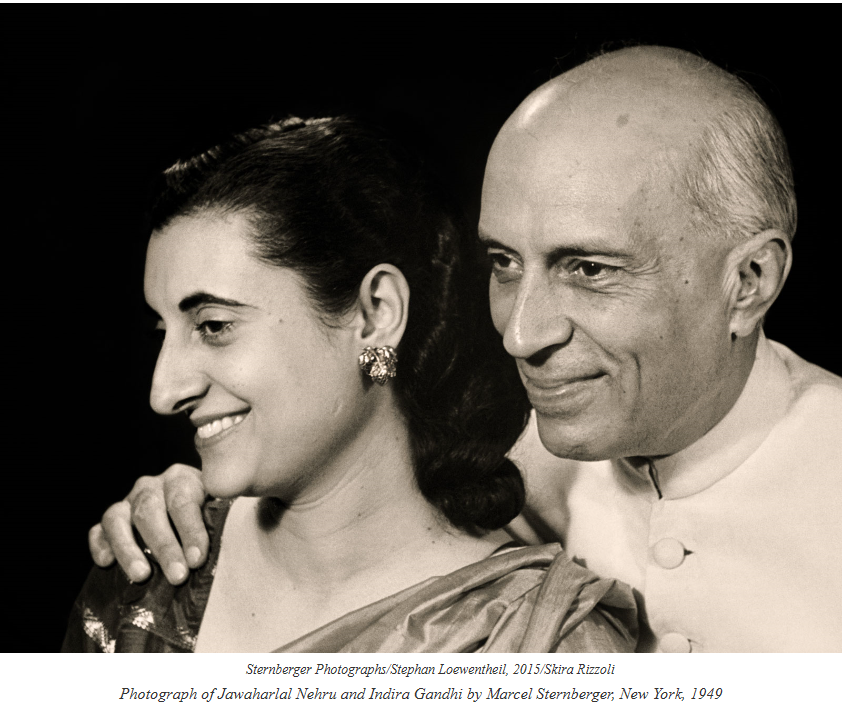
JN with his only child, India-PM 1917-1984 Martial Law Indira Gandhi
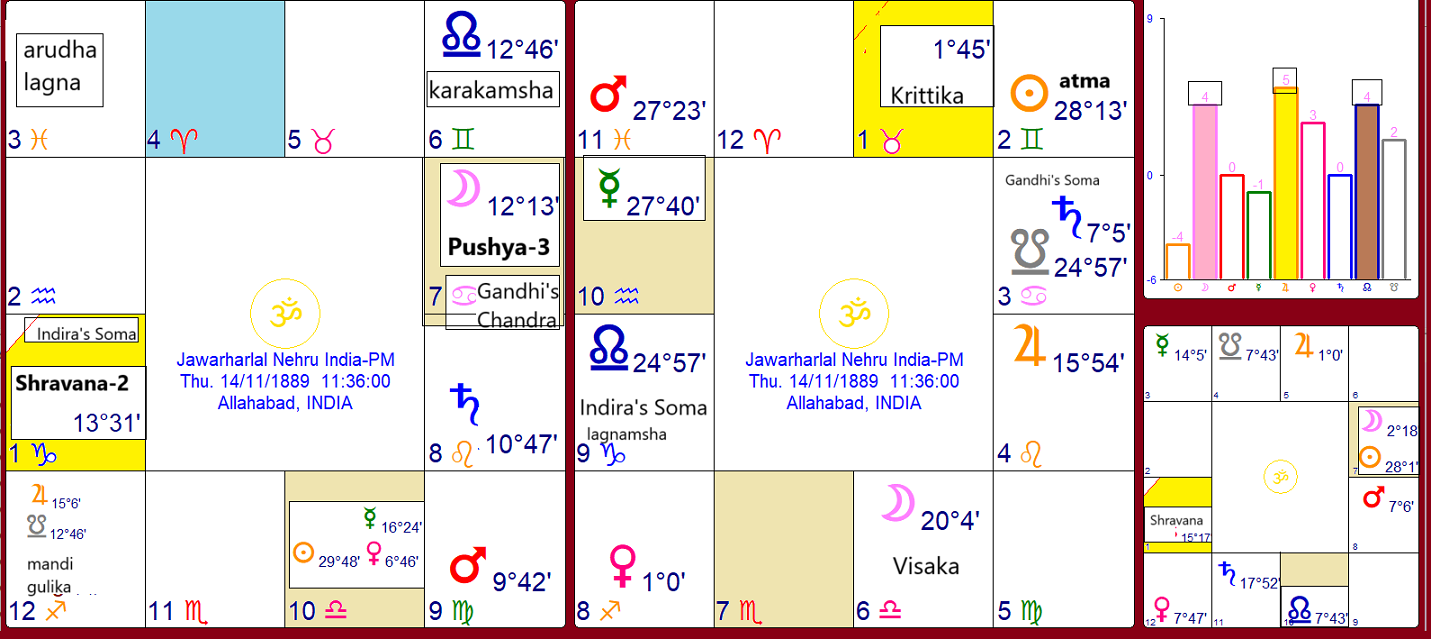
historian
First Prime Minister of Independent India [1947 until 1964]
Jawahar Lal Nehru
1889-1964
birth data from https://en.wikipedia.org/wiki/Jawaharlal_Nehru
tentatively rectified by BP Lama Jyotishavidya
charts + graphs + tables = produced by Shri Jyoti Star - www.vedicsoftware.com
- adapted by BP Lama
Rising Nakshatra
Masculine Public-Figure Examples
Shrona - Hari-deva - Viṣṇu ṛkṣa
BPL COMMENTARY
// keeping the beat //
For Zra-vana births of masculine valence, the condition of reflective, sheltering, undulating, rhythmic, habitual, culturally rooted, boundary-defending, security-seeking, nourishing, parental, matrikaraka Chandra may considerably affect the outcome.
For those born into the Soma-ruled paradigm of Apramaya, mother-figures, protectors, guardians, elemental spirits, naatural environments, waters, roots, eggs, gardeners, farmers, fisher-folk, caretakers, foundation-builders, police, schoolteachers, parents, providers of nourishment, and defenders of the root culture, may be especially influential.
Throughout life, whatever their travels for safety or financial need, Śrāvaṇa-born remain profoundly patriotic toward their homeland and anchored in familiar domestic routines.
Instructional guidance provided by emissaries from the civilizations of Aquila. Their purpose is sensitive, parental leadership and maintenance of the comforting rhythms of the social orderr.
The Listener * Shaman
Śrāviṣṭha gentlemen are exceptionally concerned with their social reputation.
Parental in their authority style, they adopt organizational caretaker roles and are found in secure positions at all levels of society. Śrāvaṇa are often found working in the slow but reliable bureaucracies which evoke their characteristic persevering patience.
Apramaya-born are often found operating charitable agencies, teaching school, or protecting their cultural foundations. Although their careers may elevate to the highest ranks of social decision-making, Hari-born remember always the simple family folk and their concerns with property, security, and nourishment.
As fathers, teachers, and social leaders, shravistha chaps are generally stable and protective. They are blessed with an intuitive understanding of the social law in context of ancient customs. Many are lawyers, judges, social-justice advocates, or teachers of the law.
In personal relationships, their comfort-seeking Chandra seeks an equally placid, parental match. Yet, being such peaceful people, these men may find balance with wives who are somewhat more outspoken.
Śrāvaṇa-born are highly skilled listeners. Due to their exceptional sensitivity to rhythm, pace, and tone, Śrāvaṇa can be singers and musicians. Śrāviṣṭha gentlemen are typically superb dancers who delight in the orchestrated flow of gracious dancing. When the occasion calls for careful listening to the beat of the music, their steps may be practiced and elegant.
Measured, appropriate tone
Śrāvaṇa must combine Shani's mandate to maintain the larger social order with parental Chandra's focus on the local settlement, housing, schools, and farms. Often their focus is property law .
Although public dignity remains important, Śrāvaṇa fellows are also concerned to maintain the steady life flow [Chandra] of the ethnicity or the nation. Combining Chandra's orientation to the past with Shani's need for reliable rules of conduct, shrona folks may appear to be rather old-fashioned. They find comfort in the old liturgical rhythms and are often regular participants in the rites of public worship. Their most cherished roles are usually Father and Grandfather.
Themes of social stability , public safety, property rights, protection of the old routines, maintenance of the tribe, and the soothing rhythms of homelife may contextualize Śrāvaṇa's terrestrial experience. Applies also to Chandra in Śrāvaṇa
QUOTATION Śrāvaṇa
from: Shil-Ponde(1939). Hindu Astrology Joytisha-Shastra. p 86 .
" An excellent character, the keynote of which is kind heartedness and generosity,
-
particularly to those less fortunate than himself.
This man will always be able to accumulate the good things of life
-
without injuring anyone else to do so.
He will be disposed to share his belongings with the poor and needy.
-
The extent of his activities in this direction,
-
will of course depend on his station in life.
Many social workers and philanthropists have Śrāvaṇa rising.
He will also be very religious
-
and will participate in church activities
-
if his environment permits."
[end quote]
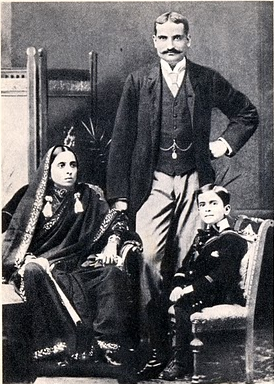
Jawahar Lal Nehru with his mother and father, c. 189x
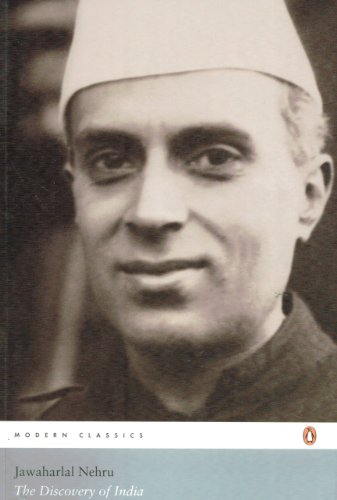
https://en.wikipedia.org/wiki/Swarup_Rani_Nehru
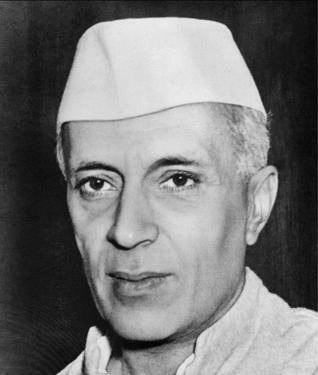 Biographical data matched to
Vimshottari dasha
calendar
Biographical data matched to
Vimshottari dasha
calendar
-
India-PM 1889-1964 Toward Freedom Jawaharlal Nehru
[Shani mahadasha] [age birth until age 6.3]
Thu-14-Nov-1889 Earth-birth in Allahabad, North-Western Provinces, British India [now Allahabad [Prayagraj] Uttarpradesh, India ] * Shani-Mangala bhukti
[Budha Mahadasha] [age 6.3 until age 23.3]
-
[Budha-Tula] [Budha in bhava-10] [Svati-Budha-yuti-Surya-Visaka-nicha] [Svati-Budha-yuti-Shukra-Svati]
1903 [JN age 13] initiated into Theosophical Society by Annie Besant * Budha-Surya bhukti * Surya rules 8-occult
1905-1907 [JN age 16-17] two-years at Harrow boarding school, university preparatory study * begin Budha-Mangala bhukti until Budha-Rahu bhukti * Mangala rules 4-diploma study
Oct-1907 [JN age 18] enter first-year studies at Trinity College, Cambridge * Budha-Rahu bhukti * Rahu's ruler Budha studies
1910 [JN age 22] earned honors A.B. diploma in Natural Sciences from Trinity College, Cambridge * Budha-Shani chidradasha * Shani lagnesha
1912 [JN age 23] completed law study + admitted to the practice of Law in Britain * Budha-Shani chidradasha * Shani lagnesha
[Ketu Mahadasha] [age 23.3 until age 30.3] [1913-1920]
-
[Ketu-Dhanus] [Ketu in classroom-12] [Apah-Guru-yuti-Ketu-Mula]
08-Feb-1916 [JN age 27] consecration of marriage-1-of-1 with Kamala Kaul * Ketu-Mangala bhukti * Mangala rules Mesha svamsha ++ R-K gochara Makara-Karkata contact navamsha R-K ++ contact Chandra-Karkata ++ dvadasa Sade-Sati
Aug-1916 until Sep-1918 Janma Sade-Sati Karkata
- [7, law, contracts, equity, justice, arrangments, negotiation, bargains, alliances]
- [age 27-30]
19-Nov-1917 [JN age 28] celebrated the birth of child-1, Indira Gandhi * Ketu-Guru bhukti ++ janma Sade-Sati + Rahu-opp
[Shukra Mahadasha] [age 30.3 until age 50.3] [1920-1940]
-
[Shukra-Vanika] [Shukra-10] [Yogakaraka] [Svati-Shukra-yuti-Surya-Visaka-nicha-] [Svati-Shukra-yuti-Budha=Svati]
1930-1933 [JN age 42] force to isolate in prison , JN forms key relationships with other decolonizing revolutionary figures * Shukra-Guru bhukti * Guru rules 12-prison
06-Feb-1931 [JN age 42] grieved the decease of father, Motilal Nehru * Shukra-Guru bhukti * Guru rules 7th-from-pitristhana
1934 [JN age 45] publication of free-format historiographical letters, Glimpses of World History * Shukra-Shani bhukti * Shani lagnesha
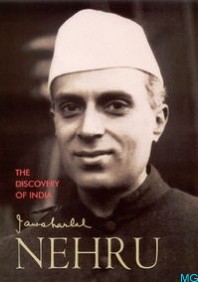 1936
[JN age 47]
publication of autobiography
Toward Freedom *
Shukra-Budha bhukti *
Budha publication
1936
[JN age 47]
publication of autobiography
Toward Freedom *
Shukra-Budha bhukti *
Budha publication
Jan-1938 [JN age 49] grieved the decease of mother, Swaroop-rani Thussu Nehru * Shukra-Budha bhukti * Budha rules 12th-from-matrikaraka Chandra
28-Feb-1939 [JN age 51] grieved decease of wife, Kamala Kaul Nehru * Shukra-Ketu chidradasha
[Surya Mahadasha] [age 50.3 until age 56.3] [1940-1946]
-
[Surya-Vanika] [Surya in bhava-10] [nicha-Visaka-Surya-yuti-Budha-Svati] [nicha-Visaka-Surya-yuti-Shukra-Svati]
1942-46 [JN age 53-57] in prison * Surya-Rahu until Chandra-Chandra bhukti [release] Surya transformations ++ dvadasa-janma Sade-Sati
Sep-1945 until Jul-1948 Janma Sade-Sati Karkata
- [7, law, contracts, equity, justice, arrangments, negotiation, bargains, alliances]
- [age 57-60]
[Chandra Mahadasha] [age 56.3 until age 66.3] [1946-1956]
1947 [JN age 58] publication of JN's celebrated history [composed while in prison] Discovery of India * Chandra-Rahu bhukti * Rahu's ruler = Budha publications ++ janma Sade-Sati
15-Aug-1947 [JN age 58] inaugurated as First Prime Minister of Independent India * Chandra-Rahu bhukti * Rahu-6 ruler = Budha-10 leadership ++ janma Sade-Sati
30-Jan-1948 [JN age 59] in a climate of intense ethnic strife, assassination of key Independence leader, Mohandas Gandhi * Chandra-Rahu bhukti * Rahu-6 conflict, strife, crime ++ janma Sade-Sati
1950 [JN age 60] following Mahatma Gandhi murder, ongoing sectarian violence * Chandra-Guru bhukti + Guru in adversarial 6th-from-Chandra
[Mangala Mahadasha] [age 66.3 until age 73] [1956-1963]
1962 [JN age 73] health begins a precipitous decline * Mangala-Surya bhukti * Surya rules 8-conditions of death
[Rahu Mahadasha] [age 73 until decease age 75] [1963-1964]
27-May-1964 [JN age 75] blessed liberation from the Earthen-body, via aneurysm * Rahu-Rahu svabhukti
-
India-PM 1889-1964 Toward Freedom Jawaharlal Nehru
[Sparkling Splendid Surya]
pitri-karaka [father] jyoti-karaka [light]
[nīcha] - [dikbala]
[shocking-transformative randhresha for Makara - Draco indriya-lagna]
see Shani and Shani-drishti to source Surya's bargaining, mediating, advocacy
[bright focus of leadership equity]
[confidently displays balanced social authority]
[tends to compromise the independent intelligence, yet can shine brilliantly in pursuit of justice and fair agreements]
[may be entrusted to conduct high-level secret negotiations]
[center-stage command roles in institutional brokerage]
[contract-making elite father may be boss, leader, executive officer]
...
[collaborative-instructional Viśākha-3] [navamsha Surya-Mithuna] intuitively businesslike, smoothly administrative, collaboratively political
[Atmakaraka politics, intelligence, self-confidence, romantic idealism, central roles]
[Visaka-Surya-yuti-Budha-Svati]
[Visaka-Surya-yuti-Shukra-Svati] handsome
combined rulers of 5 + 6 + 8 + 9 + 10 occupy 10-elite command + intake drishti of risk-rewarding Rahu-6
-
[Surya-Vanika]* Hiranya-garbha - golden fetus * brightly charismatic confidence of Center-stage Surya radiates through the bargaining deal-making rashi of Shukra
-
[Surya in bhava-10] bright center of hierarchy * confidently governing * legislative intelligence * focus on social order * regulatory entitlements * political authority * brilliant career * eye on elite positions * radiant reputation * sparkling center of the leadership drama * father may be a governor, director, supervisor, boss
-
[Surya-yuti-Budha] confidently conversational * brightly explaining messenger * entitled to discuss * creatively intelligent sibling-cohort * discursive father-figure * gestures conduct the spiritual rays of the Sun * radiantly descriptive * articulate in drama * skillful game-player * self-confident announcements * talks about ideals * narrative of power-politics * recites love poems * describes divine romance
-
[Surya-yuti-Shukra] confidently harmonious * brightly creative bargainer * uniquely intelligent feminine-figures * entitled to pleasures * aesthetic expressions align with the spiritual rays of the Sun * financial politics * graciously creative * dramatic promises * radiantly diplomatic * self-reflexively attractive * father may be artist-broker-arranger
OUTCOMES - SURYA
self-reflexively commanding, brightly law-imposing, charmingly authoritative, regal style of maintaining social order, hierarchically focused, radiantly responsible, politically elite, splendidly regulating, center-stage chief executive [Surya in bhava-10] rules
- 8-unexpected eruptions of regenerating force, occult initiation, mystical revelation, shocking intervention, opaque empowerments, invasive surgery, intensive healing, evolution, violent explosion, sudden identity change, rejuvenation, recycling, rebirth, hidden assets, upheaval, undisclosed secrets, transformative events, discovery, in-laws of first marriage, health of younger sibling-cousin
CAREER - SURYA
incoming Parashari drishti from both Shani and Rahu
- receives disciplined, restricting drishti from Shani-Simha-8
- risk-rewarding, ambitious, taboo-challenging drishti from Rahu-Mithuna-6
EDUCATION
Surya-Budha-Shukra = combined rulers of 5 + 6 + 8 + 9 + 10 occupy Tula 4th-from-Chandra = 10-elite command + intake drishti of risk-rewarding Rahu-6
The son of a wealthy barrister, JN enjoyed an elite university education [4] in Natural Sciences.
LAW PRACTICE and POLITICS
Following his father's trade, JN qualified as a London-trained attorney. Yet, JN found the lawcourts of Allahabad to be parochial and petty - due to impatience of internationally educated, literate, and critical-thinking [Kuja-Kanya-9]
JN turned to the intractable problems of Bharati colonial politics for intellectual relief from lawyer's boredom. [Surya rules Shani-Simha intractable political problems +++ Shani-8 fixed-political-dangers also casts drishti upon Surya-Tula-10]
FATHER
Dad = Motilal Nehru = [b. 06-May-1861, d. 06-Feb-1931]
Dad = an elite lawyer of Alllahabad, and a top leader within the pro-independence Indian Congress organization [10].
An international traveler with profound ties to UK, dad became notably entreasured. [Surya-yuti-Shukra ++ Kuja-9 rules 11]
Both of JN's parents supported him completely into mature adulthood. They deceased during JN's forties.
[Comfortable Caretaking Chandra]
matrikaraka [mother] * garha-karaka [village]
[svakshetra]
[balancing-bargaining jaya-pati for Makara - Draco indriya-lagna]
[comforted by mutual caretaking relationships]
[sensitive to parenting contracts]
[needs to protect the ancestrally stabilizing arrangements]
[soothed by defensive negotiations]
[lifepartner may be culturally-sensitive match-making advocate]
[rhythmically routinized mother may be sheltering adviser, meddler, mediator]
...
[negotiating-diplomatic Pushya-3] [navamsha [Chandra-Tula] intuitively sensitive diplomatic-arranging-bargaining
-
[Chandra-Karkata] comforted by maternal soothing * settled into tidal rhythms * needs to protect
-
[Chandra in Pushyami] soothed by lawful customs * protectors of the ethno-social structure * needs dignified orderly habits
-
[Chandra in classroom-7] comfortable with arrangements * familiar with bargaining * needs harmony * soothed by match-making * feels the pulse of deal-making * allied to the mother * accustomed to adjudication * habitual negotiator * calmed by customary arrangements * rhythmic rebalancing * needs fair contracts * sheltered by a parenting partner * nourished by agreements * undulating equity * mother may be a match-maker, attorney, advocate, judge
OUTCOMES - CHANDRA
sensitively adjusting, protectively harmonious, routinely bargaining, parentally equalizing, rhythmically arranging, customary middleman, predictably meddling, culturally agreeable, emotionally adjudicating, needs to hold mediating positions [Chandra in classroom-7] rules
- 7-covenant, promise, trust, contractual relationships, social justice, advocacy, legal judgments, lawcourts, appeals, representation, equity, diplomacy, partners, justice, marriage, legal and formal partnerships, negotiation, alliance-crafting, match-making, fair arrangements, even deals, advocacy, trading, bargaining, brokerage, haggling, go-between, middleman, meddler
CAREER - CHANDRA
- [folk-reputation 10th-from-Chandra = land-ownership, patriotism, ethnicity, familiar rhythms, cultural foundations, defense of a way-of-life, in the competitive, innovative, primitive style of Mesha-4]
CHANDRA in 12th-from lagnesha SHANI
emotional needs often invisible due to work pressure and fear of change
- India-PM 1889-1964 Toward Freedom Jawaharlal Nehru the rhythmic pulse of yearning for a politically independent India was invisible [12] for many generations. Various passionately imaginative Independence schemes came and went.
- Overall, the public feared change [Shani-8 Simha politics] The vast populace were immersed in their ancestral rituals [Chandra].
- Then during the intense psycho-emotional pressure of janma Sade-Sati, unexpectedly, the dream manifested. UK financial exhaustion following WW-2 caused British occupation to be an unbearable expense, and Independence became a reality.
MOTHER
Mom = Swaruprani Thussu Nehru
MARRIAGE partnership emotional equity support expectations
[7th-from-Chandra-7] lifepartnership 1-of-1
- bhava-1 personal identity, style of movement, embodiment
- Makara social dignity, class-status, reputation, respect, social approval, governance, regulation
The Nehru marriage was properly conducted and socially respected [spousal arrangement invests into Makara-1]. Focus of caretaker spouse's emotional attention is upon the native [1] and his embodied personality [1]. KK provided full domestic and social support to her husband while loyally parenting their child. She was comfortable in the roles of companion, advocate, adviser, and broker.
[Competitive Champion Kuja]
bhratru-karaka [brother] virya-karaka [virile]
[homebound-anchoring bandesha for Makara - Draco indriya-lagna]
[gainful-friendly labha-pati for Makara - Draco indriya-lagna]
[karako bhavo nashto for father, patrons, chieftains, indoctrinators]
check Budha + Budha drishti to source Kuja's precisely logical, rationalizing critiques
[Dhanayoga ruler of 11 occupies 11th-from-11]
[dynamic humanistic ministering fighter]
[broad global understanding of principled humane assistance]
[energized ideological analytically correct pontification]
[criticism-driven dominant celebrity]
[worldview based in forceful championship of helping workers and animals]
[vigorously promotes philosophical convictions about labor practices]
[complaining logical father may be patron, patriarch, pushy believer, rationalizing indoctrinator, service-oriented pro-active preacher]
...
[fantasizing-conceptual Uttaraphalgunī-4] [navamsha Mangala-Meena] intuitively competitive forward-pushing imaginative clairsentient drive
-
[Mangala-Kanya] penetrating logic * proactive helping * thrust toward service * energetic assistance to the needy * pushy complaints * [potentially] vindictive * champion of litigious accusation * military planning * aggressive indictments * investigative journalism * medical treatment interventions
-
[Mangala in bhava-9] drive toward doctrine * champion of paradigmatic belief * pursuit of patronage * dynamic preaching * philosophy of innovation * believes in conquest * aggressive or sexualized paternal energies * dominating military father-figures * growth-challenging paternal behavior
OUTCOMES - MANGALA
dynamically philosophical, vigorously globalist, forward-pushing preacher, innovatively dogmatic, pro-actively ideological worldview, kinetically charitable, energetically patronizing, champion of extensive philanthropic action [Mangala in bhava-9] rules-
4 cultural foundations, property boundaries, way of Life, protection, defense , homeland, household, routines, rituals, mother, parents, customary rhythms, caretakers, socialization schooling, gardens, waterways, transportation, housing, social security, sense of place, environmentalism, citizenship, belonging, ethnic basis, ethnoreligion, patriotism, real-estate, farming, land-ownership, burial, predictability, health of the elder sibling
-
11-fruitful revenues, interconnected income, profits, material achievement, social networking, friendships, community linkage, fan-clubs, mass participation gatherings, collectivism, marketplace gridworks, distribution, association, populism, economic systems, fundraising, gains-and-goals, awards for work accomplished, health of the enemies
CAREER - KUJA
Kuja-9 rules patriotic, dominating bhava-4 = 10th-from-Chandra
Kuja yogakara from Chandra lagna
JN held the PM-portfolio for 17 years, encompassing his Chandra Mahadasha and Kuja Mahahdasha
he died in Rahu-Rahu svabhukti
SCHOOLING and FATHER
The son of a wealthy barrister, JN enjoyed an elite university education [4] in Natural Sciences.
Kuja-9 bandesha, although aggressively logical and gifted in analysis, is located in 6th-from-4 showing some mistreatment by schoolteachers and a pushy, criticizing father.
[Busy Bantering Budha]
jamayah-karaka [sibling] sandesha-karaka [message] shisya-karaka [student]
[inimical-accusing rogesha for Makara - Draco indriya-lagna]
[believing-principled dharmesha for Makara - Draco indriya-lagna]
check Shukra and Shukra-drishti to source Budha's sweetly smoothing, adjustable mercantile brokerage
[narrative of negotiating leadership]
[responsibility for maintaining equable communications]
[executive command via conversational bargaining skills]
[talks about government trade contracts]
...
[systematic-gainful Arcturus-3] [navamsha Budha-Kumbha] intuitively explaining proletarian mass-market communications
[Svati-Budha-yuti-Surya-Visaka-nicha]
[Svati-Budha-yuti-Shukra-Svati]
combined rulers of 5 + 6 + 8 + 9 + 10 occupy 10-elite command + intake drishti of risk-rewarding Rahu-6
-
[Budha-Tula] articulation of contracts * equable discussions * balanced designs * commercial arrangements * explains procedure for fair agreements * descriptive bargaining * skillful matching * accommodating conversations * messages about negotiation * programming for trade exchanges * manufactures harmonious patterns * hands-arms-shoulders send equalizing gestures
-
[Budha in bhava-10] communications publicity * narrative of leadership * makes official pronouncements * describes social responsibilities * conversations about policy decisions * prominent spokesperson * talks about maintaining order * explainer of governance * detailed executive announcements * delivers lawful information * chats about social authority * scripted hierarchical management methods * dignified sibling-cohort * reputation for writing
-
[Budha-yuti-Surya] amusing explanations * entertaining chatter * central roles in communication * brightly clear descriptions * dramatic enunciation * confidently delivers instruction * articulation of radiant certainty * political messenger * talkative father-figures
-
[Budha-yuti-Shukra] explainer of balanced arrangements * diplomatic conversations * parity-seeking discussions * manual adjustments * enjoys words * sweet descriptions * delivers instruction about relationships * articulator of equity in agreements * message of fairly bargained contracts * skilled in songwriting * talkative sister-cousin-cohort * detailed lyricist * attracts chatty partners
OUTCOMES- BUDHA
talkatively authoritative, recognizable in media advertising, executive instructions, publicly explains orderly social process, chief organizational spokesperson, verbally commanding, skillfully describes regulation, governance by collaboration [Budha in bhava-10] rules
-
6-ministries of service, dehumanization, misconduct, war, jail, slavery, pollution, argumentation, healthcare workers, ailment, injury, medical treatment, hypocrisy, crime, cheating, animosity, toxins, complaints, accusation, litigation, blaming, scapegoat, aid workers, helpers. imbalanced conditions, injustice, betrayed promises, servants, laborers, hostility, animosity, disagreement, dehumanization
-
9-ideology , paradigm of belief, profession of faith, principled convictions, higher understanding, father-figures, priestly patronage, preaching, patriarchal entitlements, philosophical convictions, theory, public spiritual guidance, celebrated doctrines, sangha, sacred teachings, credenda, globalism, dharma, worldview, weltanschauung, mother's health
CAREER - BUDHA
drishti outgoing from [Budha-Tula] [10] activates
- 4-patriotism, infrastructure, parents, transport, stabilizing, cultural foundations
[Generous Growing Guru]
dhava-karaka [husband] bahuta-karaka [variety]
[svabhava] [svakshetra]
[busy-managing vikrama-pati for Makara - Draco indriya-lagna]
[retreating-contemplative vyaya-pati for Makara - Draco indriya-lagna]
multiple sanctuaries, many inspirational spirit-guides
...
[political-demonstrating Pūrvāṣāḍhā-1] [navamsha Guru-Simha]
[Apah-Guru-yuti-Ketu-Mula]
-
[Guru-Dhanus] much philosophy * wide worldview * doctrine of inclusive diversity * broad scope of guidance * humanistic ideology * jovial principled outreach * permission to preach * expands the range of beliefs * understanding of multiple theories * generous priests * global beneficence * many sacred teachings
-
[Guru in bhava-12] great inspirational interiority * visionary guidance in seclusion * many symbolic meditations * much uplifting divination * many hospitalizations or incarcerations * many spiritual retreats * numerous offerings to psychic way-showers * extensive teaching in private environments * believes in clairsentient trance wisdom * patron of sanctuary enclosures * in a wifely nativity, husbandly-companion may be benevolently invisible
-
[Guru-yuti-Ketu] upeksha-karaka * multiple options for severance * broad permission to abandon unsustainable connections * diverse wanderings * many occasions of surrender * philosophy of impermanence * large-size vacuums * many holy pilgrimages
OUTCOMES - GURU
privately philosophical, expansively imaginative, broadly visionary, cheerfully insightful, contemplatively secluded, tolerantly prayerful, invisibly guided [Guru in bhava-12] rules
-
3-communications, messaging, sermons, scripts, radio-television, media-products, Writing and Publishing, letters of correspondence, announcements, planning, schedules, sales, marketing, documentation, reporting, cohort, entourage, committee-work, iterative stepwise process, manufacturing, commercial business, instruction, explanation, discussion, diagrams, labeling, event management, signage, training, itinerary, tours
-
12 enclosures, the bed, fantasies, privacy, interior spiritual guidance, clandestine undertakings, intuitive awareness, non-linear conceptual undertanding, concealment, seclusion, invisibility, dissolved identity, meditation, contemplation, dreamworlds, astral plane, imaginary scenarios, sanctuary sleep, distant lands, health of the avowed partner
CAREER - BRIHASPATI
[Guru in bhava-12] = 3rd from Budha publications
Guru rules Meena-3 Arudha lagna publications, writing, documentation, discussion, teamwork
[Sweetly Suave Shukra]
svadu-karaka [sweet] kalatra-karaka [wifely companion]
[svakshetra]
[Yogakaraka karmesha for Makara - Draco indriya-lagna]
[Yogakaraka vidya-pati for Makara - Draco indriya-lagna]
...
[ideological-optimistic Arcturus-1] [mūlatrikoṇa] [navamsha Shukra-Dhanus]
[Svati-Shukra-yuti-Surya-Visaka-nicha]
[Svati-Shukra-yuti-Budha-Svati]
combined rulers of 5 + 6 + 8 + 9 + 10 occupy 10-elite command + intake drishti of risk-rewarding Rahu-6
-
[Shukra-Vanika] appreciation of negotiation * taste for balanced color schemes * attracted to beautiful designs * enjoys the company of designers * prefers adjustable partners * pleased by brokerage * equable alliances * artfully arranges agreements * bargains sweetly * harmonious mediation * match-making for equity * aesthetic of the fair-trade deal
- [Shukra-10] seeks pleasure via regulated order * enjoys regulatory authority * socially prominent contractual agreements * reputation for for gracious balancing * respects feminine-figures * harmonious style of governance * likes pleasing designs to adorn the upper legs * nice knees * lovely calves * rule-maker imposing equity * appreciation of hierarchical rank * legislates justice * in a husbandly nativity, wifely-companion may hold an elite social position
-
[Shukra-yuti-Surya] balanced roles in drama * appreciation for political display * pleasantly charming * self-focused diplomacy * radiant bright beauty * self-reflexive bargaining * sweet entitlements * negotiating father-figure * self-directed arrangements * focus on trade exchange * solipsistic romance * idealistic contracts * enjoys the game of deal-making * prefers self-confident partners
-
[Shukra-yuti-Budha] sweetened messages * gracious explanations * talented in singing-songwriting * articulate negotiations * advocates for reasoning process * talkative feminine-figures * pleasant conversations * bargaining for business * sibling-cohort collaborative harmony * enjoys the company of students * detailed contracts * prefers logical arrangements
OUTCOMES - SHUKRA
recognized for pleasantly sensual qualities, enjoys elite social position, harmoniously hierarchical, aesthetic of institutional decision-making, public finance, prefers a luxurious profession, musical-artistic leadership roles, appreciates having a respected rank [Shukra-10] rules
-
5- Politics, center-stage roles, theatre, demonstration, display, charming brilliance, genius, poetry, choice-making, showmanship, gambling and gamesmanship, romantic idealism, creativity, fashion-shows, flamboyance, celebrity entitlements, confidence, artistic performance, drama, children, financial speculation, intelligence, entertainments, fun
-
10-career, profession, dignity, regulatory roles, governance duties, social authority, symbolic recognition, iconic visibility, leadership responsibility, top status, reputation, commanding positions, honor, high regard, public respect, executive power, elite rank, lawful imposition, organizational director
CAREER - SHUKRA
[Sober Structural Shani]
duro-karaka [endurance] * jara-karaka [Jahre, years]
[energizing-identifying lagnesha for Makara - Draco indriya-lagna]
[acquisitive-preserving dhana-pati for Makara - Draco indriya-lagna]
see Surya + Surya-drishti for Shani's soberly confident, lawfully displaying, enduring self-certainty
[survives dramatic political threats]
[continues rigidly ceremonial initiation systems]
[must resist celebrity revolutionary entitlements]
[must endure pressure from hidden power games]
[must maintain dangerous romantic secrecy]
[obliged to make creative gambles during fearful emergencies]
[identified with the darkly brilliant pageantry of ccult transformation]
...
[defensive-patriotic Magha-4] [navamsha Shani-Karkata] intuitively class-conscious patriotic protectionism
-
[Shani-Simbha] [challenging placement] heavy old legacy drama * must accept center-stage pressures * structural compression upon heart-spine * conventional limits upon creative self-expression * tightly governed speculation * disciplined genius * orderly games * regulated drama * resistance to romance * proletarian entertainments * restricted intelligence * slow, elderly politicians * restrained entitlement * obligatory ceremonies * scarcity of amusements * maintainer of old sovereignties
-
[Shani in Bhava-8] steady time-structured transformations * impedes infinity * must impose order upon dangerous environments * resists the advance of inexorable change * must regenerate while maintaining the system * cautiously conventional initiations * tense renewals * postpones surgery * fear of eruptions * chronic trauma patterns * pressures on the hidden mechanisms of sexual-reproduction * blocks the revelation of mysteries * pushback against emerging new cycles * disaster fatigue * martial law * dry rigidity limits rejuvenation * frugal in-laws * elders preserve undisclosed assets
OUTCOMES - SHANI
lawfully transformative, camouflaged disasters, orderly evolution, frozen discovery, slow rebirth, systematically revolutionary, emergency protocol, structured healing, mature acceptance of catastrophic change [Shani in Bhava-8] rules
-
1- distinctive attributes of personality, dense material incorporation, individual personification, earthen embodiment, physical integrity, kinetic energy, dance, style of movement, athletic prowess, muscular mobility, unique character, kinetic vitality, circumstances of birth, tangible appearance, coherent social identity
-
2-acquisition, family legacy, tradition, language-lexicon, preserved memory, banking, collections, entreasurement, herd-hoard, treasury containment, financial capital, accrued amounts, asset evaluation, knowledge of history, speech-song, heritage values, color-sound, arts-and-music, face-voice-eyes-teeth-mouth-hair, genetics, stored resources, health of the father
CAREER - SHANI
Shani-8 drishti into 10 + 2 + 5
Political Governance
Known as a charming despot, JN held top command position for 17 years [1947 until 1964] = a full Rahu cycle
secrecy, sudden changes of identity, explosive conditions, terrorisam
[Shani mahadasha] [age birth until age 6.3]
[Risk-rewarding Rahu]
rajyalobha-karaka [ambition] picchala-karaka [slippery]
[beneficial advantageous placement]
[for Makara - Draco indriya-lagna]
[Rahu-6 casts passionately adversarial ministering drishti into 10-12-2]
check Budha for defining source of Rahu's apparently explanatory, communicative flair
[ambitious instructions for helping those in mental distress]
[seeks prestige via handling conflicted information]
[over-reaching desire to gain importance via scripted process]
[astonishing passion for publication of detailed mixed-caste conversations]
[unorthodox writing-editing serves mistreated, marginalized, criminal, impoverished, diseased, or victim audiences]
[shrewd management of upsetting news]
[seeks opportunity via interaction with military or medicine]
[risky taboo-challenging talk about disease, war, and injustice]
[fascinating dialogs of insinuation and implication]
...
[governing-regulatory Arudra-2] [navamsha Rahu-Makara] intuitively regulatory, lawfully orderly boundary-breacher stirring the cultural mix
-
[Rahu-Mithuna] shimmering illusion of cooperation * craving for conversation * mask of messaging * boundary-breaching broadcasts * extraordinary explanations * ambitious administration * preposterous propaganda * extravagant commercial transactions * marvelous advertising * thrilling photographs * unusual ensembles * exciting cohort * mesmerizing instructions * over-reaching management * seeks special importance via apparent [but perhaps not authentic] attributes of information delivery * Sensational scripts * exaggerated announcements * exceptional business methods *seeks privilege via communicator-roles
-
[Rahu in bhava-6] tricks the enemies [beneficial placement] = passion for prestige conflicts* in svabhava of Busy Budha, the Shadowy Specter chatters cleverly in hostile environments *glamorous ministries of service = unusual servants = cunning arguments = thrilling surge of rule-breaking assistance = treats misery with unorthodox medication = astonishing accusations in criminal lawsuits = fascinating outsider insinuates into military-medical-ministry roles = craves the delusion of disagreement = mesmerizing mistreatment of laborers and animals = desires an important role in litigation = exciting injuries = opportunistic warfare = disguised as a victim = marvelous assistance to the disadvantaged = entranced by one's own alleged misdoing = may pose as a poor-sick-harmed patient = may appear as a helpful relative of the mother's people = social mobility sought via appearance of servitude
OUTCOMES - RAHU
Rahu-Makara becomes extremely prominent and empowered = Rahu-Makara-10th navamsha [governance, regulatory authority, lawful hierarchies]
[Rahu in bhava-6] occupies Karakamsha Mithuna bhava-6 - Rahu rushes in where Angels fear to tread [6]
Super-powered Rahu-6 drishti cast into rulers of 3 + 5 + 6 + 8 + 9 + 10 + 12 ++ Ketu
- Budha-10
- Shukra-10
- Surya-10
- Guru-12
- Ketu-12
Using formal litigation [6] to achieve Rahu's goals
Seeking redress for wrongs, heightened teamwork communications among mix-culture colleages
6 conflict, warfare, accusation, exploitation, mistrust, resentment, lawsuits, divorce, mistreatment
high-powered, high-profile, fascinating collaborators [Mithuna] included
-
UK-PM Finest Hour 1874-1965 Winston Churchill
-
Satyagraha 1869-1948 Mahatma Mohandas Gandhi
-
Gitanjali 1861-1941 Rabindranath Tagore
Rahu stimulates independence following the excesses of colonialism, but also revolutionary explosions of sectarian violence and disguised commercial corruption [Mithuna]
---------
Until Chandra-Rahu bhukti in 1948, most of Nehru's political activities were considered pretentious and disorderly [polarizedt Shani-Simha] He was generally dismissed, harassed and imprisoned.
Under Rahu in bhava-6's risk-positive ambition, JN then improved his game [Simha]. Rahu's cultural mixing narratives [Rahu Mithuna] energized JN's application of the orderly legal skillset of British law, based in Roman law, to the task of governance of great Bharati masses [Shani].
During Chandra-Rahu bhukti, Indian Independence was declared and the frenetic decisions were made with shocking speed. ,
He was obliged to rule during 17 years of widespread sectarian fighting and incessant administrative corruption [Rahu-6 drishti into 10-12-2].
He had to maintain order among those who lived in superstitious ignorance, fear, insane jealousy, and squalid poverty [lagnesha Shani rules Makara-1 core personality = 6th-from-Shani]
His rulership was despotic, but enduring and effective, due to JN's long experience in dealing with the structural unfairness of Bharati society.
Nevertheless the managerial burden [Mithunas] demanded that he arise early, begin writing documents [Mithuna] then attend meetings all day, afterward signing and editing until a brief respite of sleep.
JN held the Prime Minister's portfolio against all competition, until his death in Rahu-Rahu svabhukti [17 years in office].
[Collapsing unshackling Ketu]
kavandha-karaka [headless] chidra-karaka [gaping] vasana-karaka [vacuum]
[beneficial placement for Makara - Draco indriya-lagna]
check Guru for the source of Ketu's ambivalent, liberating worldview
[disengaged from isolated theological roles]
[few/no boundaries within doctrinal private spaces]
[no barriers to inspirational movement between foreign lands]
[release from ideolologically-caused imprisonment]
[unencumbered meditation upon dematerialized essence of inner faith]
[unlimited theoretical fantasy worlds]
[may perceive non-verbal intuitive philosophical guidance]
[passively fixated on ambitiously messaging-commercial Rahu-Mithuna-6 enemies, animals, assistants, servants]
......
[defensive-customary Mūla-4][navamsha Ketu-Karkata]
[Mula-Ketu-yuti-Guru-Apah]
-
[Ketu-Dhanus] philosophically dissociates from sacred convictions * odd professors * dissolves indoctrination * empty paradigm of belief * dispersed worldview * martyr's faith * not limited by conventional beliefs * eccentric teachings * peculiar convictions * ignores restricted catechesis * releases a warm golden cloud of broad inclusivity into the misty abyss
-
[Ketu in classroom-12] forsaken by ghosts [beneficial] * eccentric research * limitless imagination * scattered intuitive insights * ambivalent toward foreigners * peculiar paternal grandmother * blurs fantasy boundaries * unstructured meditations * passive isolation * foggy clairsentience * releases invisibility * dissolves privacy * abandons the veil between perceptual worlds * ignores imprisonment * unless other graha in 12, may prefer to live free from father's mother + mother's father
-
[Ketu-yuti-Guru] misunderstandings * unsustainable convictions * abandons empty theories * believes in non-existence * vacuous catechism * wandering teachers * apostasy * wisdom of surrender * incomplete comprehension * doctrines of impermanence * Other-Worldly viewpoint * walks away in disbelief * liberating philosophy * for wifely nativities, Ketu may release the dhavakaraka husbandly-companion.
OUTCOMES - KETU
[Ketu-yuti-Guru] [12] occupy [6th-from-Chandra]= numerous emotionally adversarial conditions in invisible spaces such as prison, hospital, distant lands, isolated places, psychological or physical loss of identity, enclosures

[How Readings Work] [Sample Sacred Jewels Ratna Recommendation] [Seva]
 file update =
26-Jul-2024
file update =
26-Jul-2024
[Copyright © 1994-2024 by Barbara Pijan Lama] [Contact] [How to Request a Jyotishavidya Reading]
Barbara Pijan Lama Jyotishavidya Vedic Astrology Surya Sun Chandra Moon Mangala Mars Budha Mercury Guru Jupiter Shukra Venus Shani Saturn Rahu Ketu Graha Planets Dasha Timeline Calendar Nakshatra Navamsha Marriage Children Treasury Career Spiritual Wisdom Cycles of re-Death and re-Birth
The information on barbarapijan.com , including all readings and reports, is provided for educational purposes only. Wishing you every happiness and continuing success in studies!
all that is true, all that is noble,
all that is just and pure,
all that is loveable and gracious,
whatever is excellent and admirable -
fill all your thoughts with these things."
~~ Paul of Tarsus, Epistle to the Philippians 4:8